Introduction
The marine sector significantly relies on sophisticated machinery to maintain efficient operations at sea. Lubricants are among the essential parts that are essential to ensure the functionality and longevity of marine machinery. This blog explores the value of oil analysis in the marine industry, demonstrating how it helps determine the health of machinery and avert probable problems.
By examining the focus and breadth of this blog, we hope to offer insights into enhancing the performance of marine equipment through efficient lubrication management techniques, the Benefits of Oil Analysis in the Marine industry, and obstacles and restrictions.
Understanding Marine Lubricants
Types Of Lubricants Used In The Marine Industry
Different kinds of lubricants are used in maritime operations to guarantee the best functioning of marine machinery. These include mineral oils, artificial lubricants, and biodegradable alternatives, each designed for particular maritime applications and environmental conditions.
Key Functions Of Lubricants In Marine Machinery
Lubricants have a variety of functions that improve the effectiveness and dependability of naval gear. They not only lessen wear and friction between moving parts but also dissipate heat, stop corrosion, and stop dangerous deposits from forming. Together, these processes help minimize operational downtime and increase the longevity of crucial components.
Understanding Marine Lubricants
Types Of Lubricants Used In The Marine Industry
Different kinds of lubricants are used in maritime operations to guarantee the best functioning of marine machinery. These include mineral oils, artificial lubricants, and biodegradable alternatives, each designed for particular maritime applications and environmental conditions.
Key Functions Of Lubricants In Marine Machinery
Lubricants have a variety of functions that improve the effectiveness and dependability of naval gear. They not only lessen wear and friction between moving parts but also dissipate heat, stop corrosion, and stop dangerous deposits from forming. Together, these processes help minimize operational downtime and increase the longevity of crucial components.
Factors Affecting Lubricant Performance
Several factors affect how well lubricants operate. Factors affecting their efficiency include ambient temperature, moisture, engine speed, load, and fuel quality. Regular monitoring and analysis are necessary to determine the rate of lubricant deterioration over time. This enables prompt replacement of depleted lubricants and prevents potential machinery problems. Maintaining the optimal performance of maritime machinery and overall operational achievement depend on understanding these complexities.
Fundamentals Of Oil Analysis
Definition And Objectives Of Oil Analysis
Oil analysis, which involves looking at lubricating oil samples to learn more about the health of devices, is an essential procedure in maintenance and reliability engineering. Its main goals are to recognize wear patterns, find contaminants, evaluate the state of the lubricant, and foresee probable breakdowns, which helps with maintenance programs.
Common Tests And Parameters
- Viscosity Analysis
Analysis of the oil’s viscosity helps maintain proper lubrication under various circumstances.
2. Contaminant Particle Count
Measuring the number and size of particles in the oil provides information about its level of contamination.
3. Wear Metal Analysis
Identifying trace metal components in a wear metal analysis suggests probable component wear or degradation.
4. Water Content Analysis
Getting too much water is important since it can cause corrosion and lessen the efficiency of lubricating.
5. Acid Number (AN) and Base Number (BN)
The terms “Acid Number” (AN) and “Base Number” (BN) describe the oil’s oxidation and alkalinity, respectively, and are used to analyze lubricant degradation.
Significance Of Trend Analysis
Trend analysis is important because it monitors how test results change over time and predicts trends in equipment health. This proactive strategy allows maintenance personnel to handle problems before they become more serious, improving operational reliability and reducing unscheduled downtime.
Benefits Of Oil Analysis In The Marine Industry
1.Early Detection of Equipment Problems
Possible equipment faults can be avoided by quickly addressing concerns like abnormal wear, impurities, or declining lubricant quality.
2. Extending Machinery Lifespan
Maintaining proper lubrication conditions ensures that parts function at their best, extending the overall life of naval machinery.
3. Preventing Catastrophic Failures at Sea
Avoiding catastrophic failures at sea, protecting crew safety, and averting environmental catastrophes all require the early detection of crucial issues.
4. Optimizing Maintenance Schedules and Costs
Oil analysis Tests insights allow for exact maintenance scheduling, cutting downtime and operational expenses, which is essential for effective maritime operations.
Implementing An Effective Oil Analysis Program
A. Sampling Strategy: To guarantee representative oil samples are gathered, create a detailed strategy describing sampling spots, intervals, and processes.
B. Testing Facility: Pick a place to test with an excellent record, knowledge of marine lubricants, and the capacity for precise analysis and prompt reporting.
C. Sampling Frequency: Based on the type of equipment, the working environment, and the manufacturer’s suggestions, choose the best intervals.
D. Sampling Procedures: To reduce contamination and guarantee accurate results, staff members should be trained in proper sampling procedures using clean, properly calibrated instruments.
Following these guidelines will enable an effective oil analysis program to offer actionable information, improve maintenance selections, and ultimately increase the effectiveness and durability of maritime gear.

